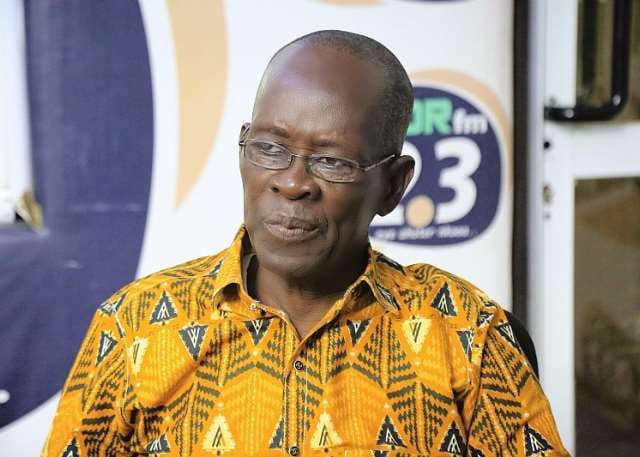Abraham Koomson, Secretary General of the Ghana Federation of Labour (GFL), has expressed strong reservations about President John Dramani Mahama’s decision not to seek re-election after his second term concludes in 2028. Koomson’s dissent stems from a belief that Mahama’s continued leadership is crucial for maintaining the momentum of ongoing reforms and ensuring stability in Ghana. He argues that a change in leadership, even a constitutionally mandated one, carries the inherent risk of disrupting the progress achieved under Mahama’s administration. While acknowledging public support for the President’s decision, Koomson contends that Mahama’s announcement was premature and potentially driven by short-term considerations rather than a comprehensive assessment of the nation’s long-term needs.
Koomson’s primary concern revolves around the potential disruption of ongoing reforms and developmental projects. He posits that a new administration, regardless of its political affiliation, would require time to acclimate to the complexities of governance and might prioritize different policy directions. This transition period could lead to delays, revisions, or even outright abandonment of existing initiatives, thereby jeopardizing the progress made under Mahama’s leadership. Koomson emphasizes the importance of continuity in leadership to ensure the successful implementation and completion of these crucial reforms, which he believes are essential for Ghana’s continued development and stability.
The GFL Secretary General also raises concerns about the potential impact of a leadership change on the nation’s economic trajectory. He highlights the importance of Mahama’s experience and established relationships in navigating both domestic and international economic challenges. A new administration, Koomson argues, might lack the same level of expertise and established networks, potentially leading to instability and uncertainty in the economic sphere. He further suggests that the continuity provided by Mahama’s continued leadership is essential for maintaining investor confidence and attracting foreign investment, which are crucial for driving economic growth and development.
Furthermore, Koomson underscores the significance of Mahama’s leadership in maintaining social cohesion and political stability. He argues that Mahama’s presence has provided a sense of stability and predictability in the political landscape, which is crucial for fostering a conducive environment for economic development and social progress. A change in leadership, Koomson warns, could potentially introduce new uncertainties and tensions, especially during the transition period, thereby jeopardizing the hard-won stability and potentially disrupting the nation’s developmental momentum.
Koomson also questions the timing of President Mahama’s announcement, suggesting that it was hasty and potentially influenced by short-term political calculations rather than a thorough assessment of the nation’s long-term needs. He argues that Mahama should have waited to gauge public sentiment more comprehensively and considered the potential consequences of his decision before making such a significant announcement. Koomson believes that a more deliberate and consultative approach would have been more appropriate, allowing for a broader discussion on the issue and ensuring that the decision is made in the best interests of the nation.
While acknowledging the constitutional term limits, Koomson argues that true leadership involves responding to the will of the people. He highlights the potential for a groundswell of public support for Mahama to continue beyond his second term, suggesting that such a mandate from the citizenry should outweigh the strict adherence to term limits. Koomson contends that dismissing such widespread public support would be a disservice to the democratic process and a missed opportunity to capitalize on Mahama’s experience and leadership to further advance the nation’s progress. He believes that the constitution, while important, should not be a rigid barrier to the expression of the people’s will, especially in matters of leadership continuity and national development.


